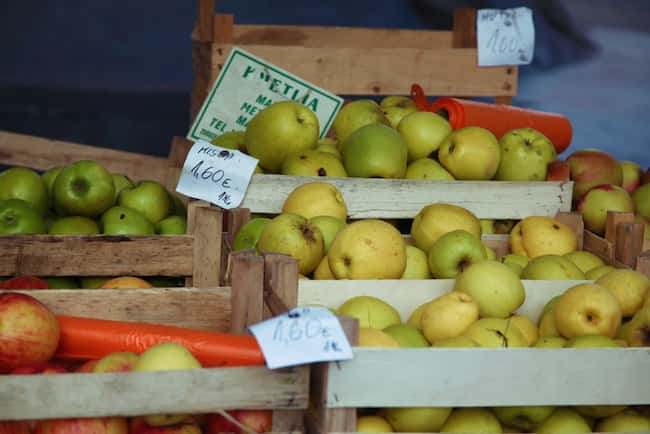Vegan vs. Vegetarian: What’s the Difference?
Both vegetarians and vegans avoid eating animal products. However, there are differences between the two groups.
As a vegan, you eat no meat or other animal foods such as dairy or eggs. Vegans also avoid wearing materials from animals, like leather or fur. While this is basically what separates vegetarians and vegans, here are some more specific comparisons:
Vegetarian diets tend to be lower in protein than vegan diets (although not necessarily). The human body needs protein to make muscles, organs, skin, nails, hair, etc., so getting enough protein when on a vegetarian diet is essential. Most Americans get much more protein than they need anyway, but plant-based protein can be challenging for the body to break down and digest. Some protein sources include:
nuts and nut butter, like almonds and cashews;
beans, including black beans, pinto beans, lentils, split peas, black-eyed peas, and soybeans ;
grains such as quinoa, brown rice, barley, bulgur wheat, whole-wheat couscous, etc.;
leafy greens such as spinach or kale.
It can be easy to get enough protein on a vegan diet. Many plant-based foods are high in protein, including soymilk products (like tofu), seitan made of gluten, tempeh made from fermented soybeans and seeds or nuts. Nuts and nut butter are also good protein sources, for example, cashews, almonds, peanut butter, or tahini.
A vegan diet excludes all animal products, whereas a vegetarian diet may include eggs and dairy and exclude meat.
This means that many vegans do not eat cheeses that use the enzyme “rennet,” often made with animal parts. Vegans may not drink milk because the commercial dairy industry typically injects cows with hormones, so they will produce more milk than they naturally would. Some non-dairy alternatives include soy-based, rice-based, almond-based, hemp-based, etc.; these can be used in cooking or baking instead of cow’s milk.
Vegetarian vs. nonvegetarian:
I am veg because of the lower fat intake and health benefits. No, I do not think that nonvegetarian food is dirty in any way. It can be much cleaner when cooked properly than some vegetables such as potatoes and tomatoes, which are fruits but eaten as veggies! The only meat I cannot stand is fish because of its smell and taste, so I don’t eat it.
Vegetarian vs. vegan, which is healthier
Vegan diets tend to be lower in saturated fat and cholesterol and higher in dietary fiber than vegetarian or nonvegetarian diets.
Vegan diets also tend to contain less omega-6 fatty acids and more omega-3s than nonvegetarians because they derive their fats from plants instead of animal products such as meat and dairy. Omega-3 fatty acids are essential for the heart, brain, and immune system health.
Heme iron is easily absorbed by our body when we eat meat, but plant iron isn’t so good at being ferried across the intestinal wall, where it can get into blood cells.
Nonheme iron found in nuts, seeds, beans, and grains has an absorption rate of between 2 – 20%, whereas heme iron is up to 35%.
The right amount of vitamin C can help our body absorb this plant-based iron. Vitamin C-rich foods include blackcurrants, bell peppers, dark leafy greens, and broccoli.
Some dietary supplements can also increase the absorption rate of nonheme iron. These include ascorbic acid (vitamin C), citrate or succinate, amino acids such as glycine or ferrous bis-glycinate, and TMG.
Why vegan instead of vegetarian:
The main argument for vegans is the cruelty to animals. Many people do not realize that animal products are linked to climate change, the world, and many health problems.
Also, dairy cows are artificially impregnated every year for them to produce milk which their babies will then be taken away from them so humans can drink it instead of them! This cycle continues until the cow ddoesn’tproduce enough breastmilk anymore, at which point she is killed because she is now considered useless by farmers.
Chickens are scalded alive because the slaughter process needs bloodless birds, but if this wwasn’tdone they would suffocate on all of their blood. On hot days chickens have no shade or water, but we still eat them and their eggs.
Soya is a very common vegan substitute for dairy and meat-based products because it contains all of the essential amino acids humans need to survive. Soya milk, tofu, or tempeh can be used in place of ccow’smilk, cheese, or chicken, respectively.
So overall, I think that vegans tend to lead healthier lifestyles than vegetarians and nonvegetarians, but this does not mean they are better! It just means that some individuals have decided to change for the better in their lives by going vegan. This will also help decrease world hunger and save more animals from being killed every year.
What do vegetarians eat:
Vegetarians eat a lot of fruit, veggies, soy-based products, and other dairy alternatives such as almond or rice-based. They also tend to eat a lot of whole grains because these provide essential fiber for healthy digestion and help reduce cholesterol levels.
